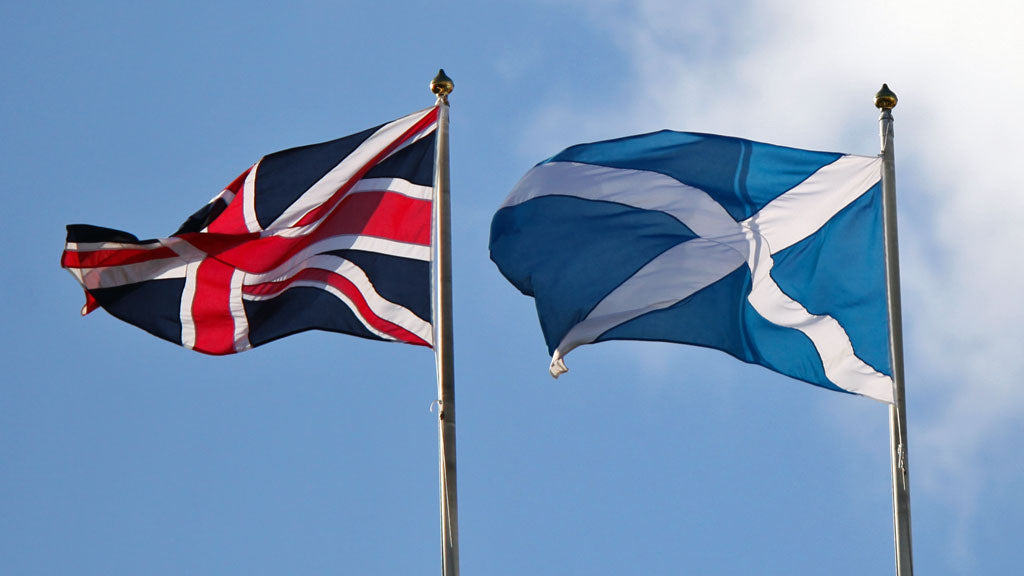
Devolution in Scotland: A Journey Towards Greater Autonomy
Share
Devolution in Scotland represents a significant chapter in the country’s political history, marking its transition from a centralized governance model to one with greater self-administration. This process has played a crucial role in shaping modern Scotland, influencing everything from legislative powers to national identity. Understanding the journey of devolution offers valuable insights into Scotland’s political landscape and its evolving relationship with the UK.
Key Takeaways
-
Political Autonomy: Devolution granted Scotland significant legislative powers and increased political representation.
-
Economic and Social Development: The Scottish Parliament has enabled tailored economic and social policies, contributing to Scotland’s growth and welfare.
-
Cultural Revival: Devolution has supported the revival of Scottish culture and heritage, enhancing national pride and identity.
-
Future Prospects: Ongoing discussions about further devolution and independence continue to shape Scotland’s political landscape.
- Explore Further: Visit key locations such as the Scottish Parliament Building and the National Museum of Scotland to gain a deeper understanding of Scotland’s political evolution.
To gain a deeper understanding of Scotland’s political and cultural evolution, consider downloading The Awesome Guide to Scotland, your ultimate digital companion for exploring Scotland’s rich history and modern attractions.
The Path to Devolution
The movement towards Scottish devolution began in earnest during the 20th century, driven by a growing desire for greater self-governance and regional representation.
Key Events
-
1979 Referendum: The first devolution referendum resulted in a narrow rejection of the proposed Scottish Assembly due to a low voter turnout.
-
1997 Referendum: A second referendum, held in 1997, saw overwhelming support for the establishment of a Scottish Parliament, leading to the devolution settlement.
- 1999 Establishment: The Scottish Parliament was formally established in 1999, marking a new era of devolved governance with significant legislative powers.
Significance
-
Increased Autonomy: The establishment of the Scottish Parliament allowed Scotland to exercise greater control over various policy areas, including education, health, and transportation.
-
Political Representation: Devolution enhanced Scotland’s political representation within the UK, providing a platform for Scottish issues and interests to be addressed more effectively.
The Impact of Devolution on Scotland
Devolution has had a profound impact on Scotland’s political, social, and economic landscape:
Political Impact
The Scottish Parliament’s creation provided Scotland with a significant degree of political autonomy, allowing for the development of policies tailored to local needs. It also paved the way for greater engagement in UK-wide political matters.
Economic Development
Devolution has enabled Scotland to pursue economic policies that reflect its unique needs and priorities. This includes investments in infrastructure, education, and healthcare tailored to Scotland’s specific context.
Social Changes
The ability to address social issues locally has led to tailored policies on health, education, and social welfare. Devolution has also fostered a sense of national identity and pride in Scotland’s ability to govern itself.
Cultural Revival
Devolution has contributed to a revival of Scottish culture and heritage, with increased support for the arts, language, and historical preservation. This has enriched Scotland’s cultural landscape and bolstered its global cultural presence.
The Future of Devolution
Since its establishment, the Scottish Parliament has continued to evolve, with ongoing discussions about further devolution and potential independence. The experience of devolution has significantly influenced Scotland’s political discourse and its future trajectory.
Ongoing Developments
-
Further Devolution: There have been discussions and proposals for further devolution of powers, including potential changes to taxation and welfare policies.
- Independence Debates: The issue of Scottish independence remains a prominent topic in Scottish politics, with ongoing debates about Scotland’s future relationship with the UK.
Cultural Impact
Devolution has cemented Scotland’s identity as a distinct nation within the UK, promoting a sense of autonomy and self-determination. The ongoing discussions about Scotland’s future continue to shape its cultural and political landscape.
Related Locations and Attractions
To explore the legacy of devolution in Scotland, consider visiting:
-
Scottish Parliament Building: Located in Edinburgh, this modern building symbolizes Scotland’s self-governance and houses the Scottish Parliament.
-
The National Museum of Scotland: Offers insights into Scotland’s political history, including the journey towards devolution.
- Holyrood Palace: The official residence of the monarch in Scotland, located near the Scottish Parliament, representing Scotland’s historical and political heritage.
Enhance Your Scottish Adventure
To fully understand the significance of devolution and its impact on Scotland, download The Awesome Guide to Scotland. This digital guide is your ultimate resource for exploring Scotland, offering authentic insights into the country’s culture, travel tips, and practical advice on transportation.
FAQ: Devolution in Scotland
1. What is devolution?
Devolution refers to the process of granting powers from a central government to a regional or local government. In Scotland, this means the transfer of legislative powers to the Scottish Parliament.
2. When was the Scottish Parliament established?
The Scottish Parliament was established in 1999 following the successful referendum in 1997 that supported the creation of a devolved legislature.
3. What powers does the Scottish Parliament have?
The Scottish Parliament has powers over areas such as education, health, transportation, and social services. However, some matters, such as foreign policy and defense, remain reserved to the UK Parliament.
4. How has devolution impacted Scotland’s economy?
Devolution has allowed Scotland to implement economic policies tailored to its needs, leading to investments in infrastructure, education, and healthcare.
5. What are the current discussions regarding Scottish devolution?
Current discussions include potential further devolution of powers and ongoing debates about Scottish independence and the future relationship with the UK.